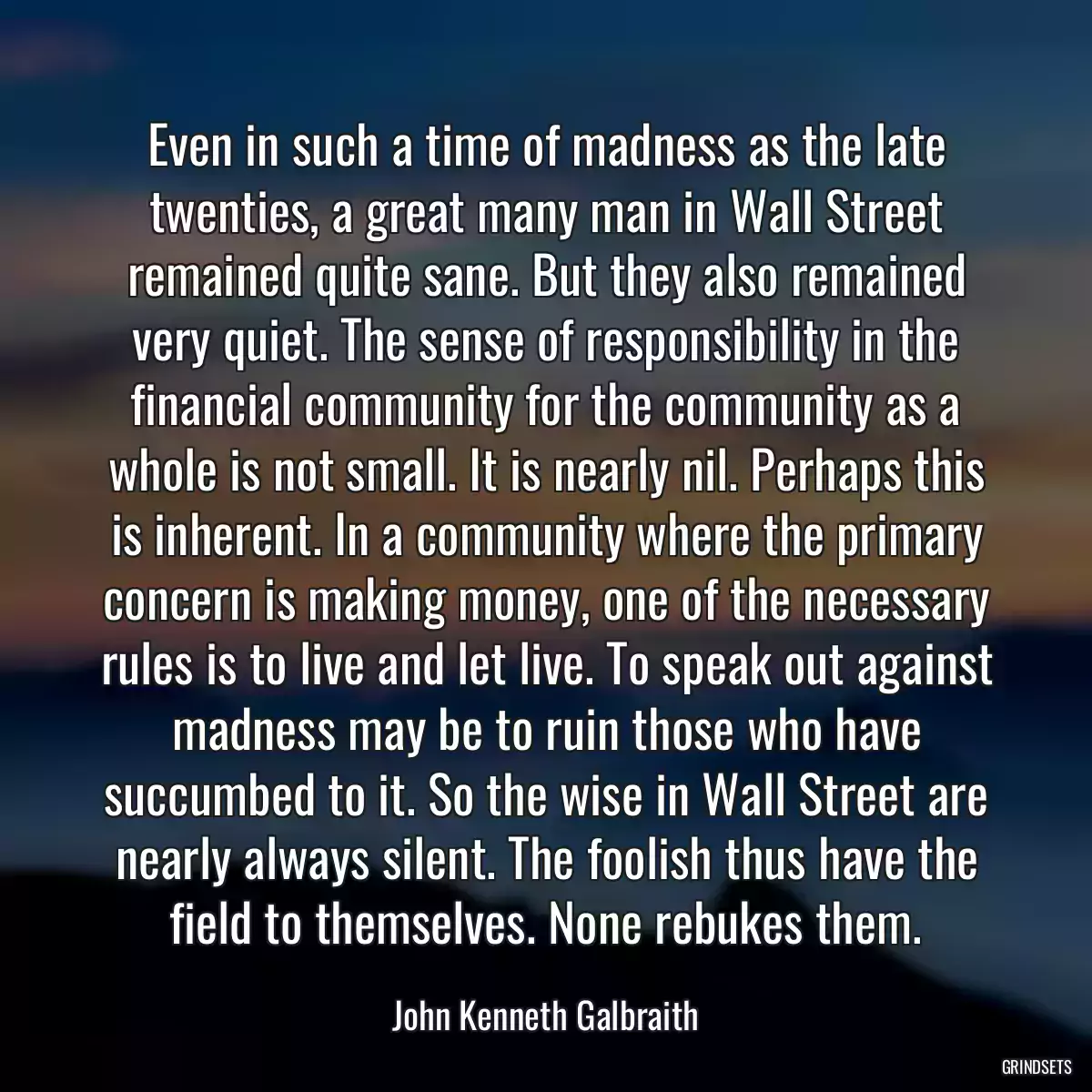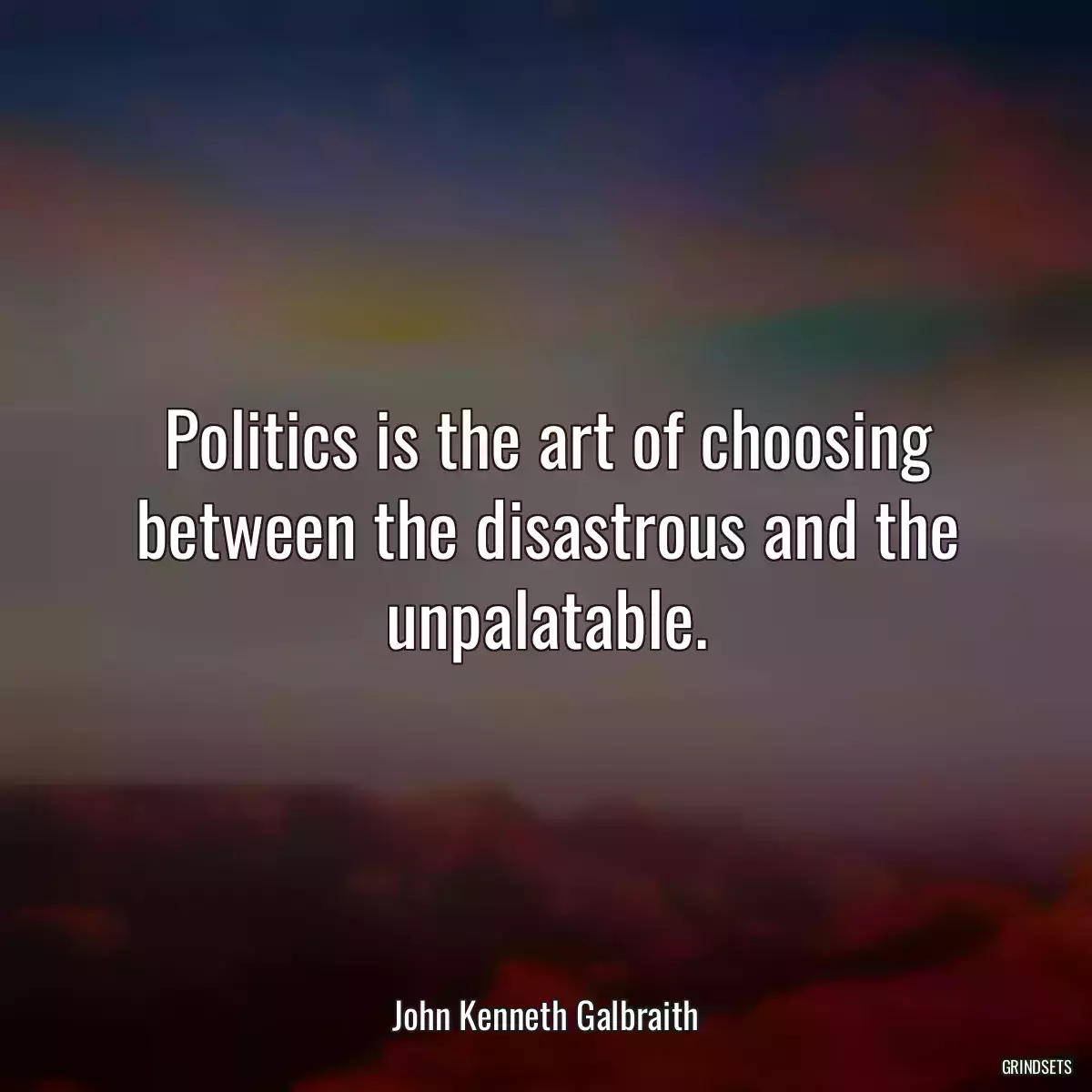
Quotes John Kenneth Galbraith - page 3
Find dozens of John Kenneth Galbraith with images to copy and share.

The salary of the chief executive of a large corporation is not a market award for achievement. It is frequently in the nature of a warm personal gesture by the individual to himself.
Hermann Goering, Joachim von Ribbentrop, Albert Speer, Walther Frank, Julius Streicher and Robert Ley did pass under my inspectionand interrogation in 1945 but they only proved that National Socialism was a gangster interlude at a rather low order of mental capacity and with a surprisingly high incidence of alcoholism.
Franklin Delano Roosevelt and J.F Kennedy were Presidents in very different times.
You may also like
There was the Missile Crisis, but one can't attribute to the [J.F.] Kennedy years anything like the problems that [Franklin] Roosevelt stood over and surmounted.
[Franklin Delano] Roosevelt was the central world figure in the two great disasters of this century - the Great Depression and World War II. By contrast, JFK came in relatively peaceful, agreeable times.
In 1736, Franklin's Pennsylvania Gazette printed an apology for its irregular appearence because its printer was "with the Press, labouring for the publick Good, to make Money more plentiful." The press was busy printing money.
The man who is admired for the ingenuity of his larceny is almost always rediscovering some earlier form of fraud. The basic forms are all known, have all been practiced. The manners of capitalism improve. The morals may not.
I've been writing a book called The Economics of Innocent Fraud. I published part of it already in The Progressive ("Free Market Fraud," January 1999). But I've been interrupted these last few months. It deals with all of the things we do, in an innocent way, to cover up the truth.

Even in such a time of madness as the late twenties, a great many man in Wall Street remained quite sane. But they also remained very quiet. The sense of responsibility in the financial community for the community as a whole is not small. It is nearly nil. Perhaps this is inherent. In a community where the primary concern is making money, one of the necessary rules is to live and let live. To speak out against madness may be to ruin those who have succumbed to it. So the wise in Wall Street are nearly always silent. The foolish thus have the field to themselves. None rebukes them.
Economic stimulation that works through the increased outlays to the affluent has, inevitably, an aspect of soundness and sanity that is lacking in expenditure on behalf of the undeserving poor.
There is an enormous thrust in our time to have a simple answer. And that simple answer is that all depends on Alan Greenspan and the Federal Reserve. And Alan, who is an old acquaintance of mine, is a marvelous performer in the impression he gives of enormously great perception.
We now in the United States have more security guards for the rich than we have police services for the poor districts. If you're looking for personal security, far better to move to the suburbs than to pay taxes in New York.
No one was responsible for the great Wall Street crash. No one engineered the speculation that preceded it. Both were the product of free choice and decision of hundreds of thousands of individuals.
The great dialectic in our time is not, as anciently and by some still supposed, between capital and labor; it is between economic enterprise and the state.
Those who yearn for the end of capitalism should pray for government by men who believe that all positive action is inimical to what they call thoughtfully the fundamental principles of free enterprise.
Consumer wants can have bizarre, frivolous, or even immoral origins, and an admirable case can still be made for a society that seeks to satisfy them. But the case cannot stand if it is the process of satisfying wants that create the wants.
Faced with the choice between changing one's mind and proving that there is no need to do so, almost everyone gets busy on the proof.
You may also like

Nothing is so admirable in politics as a short memory.